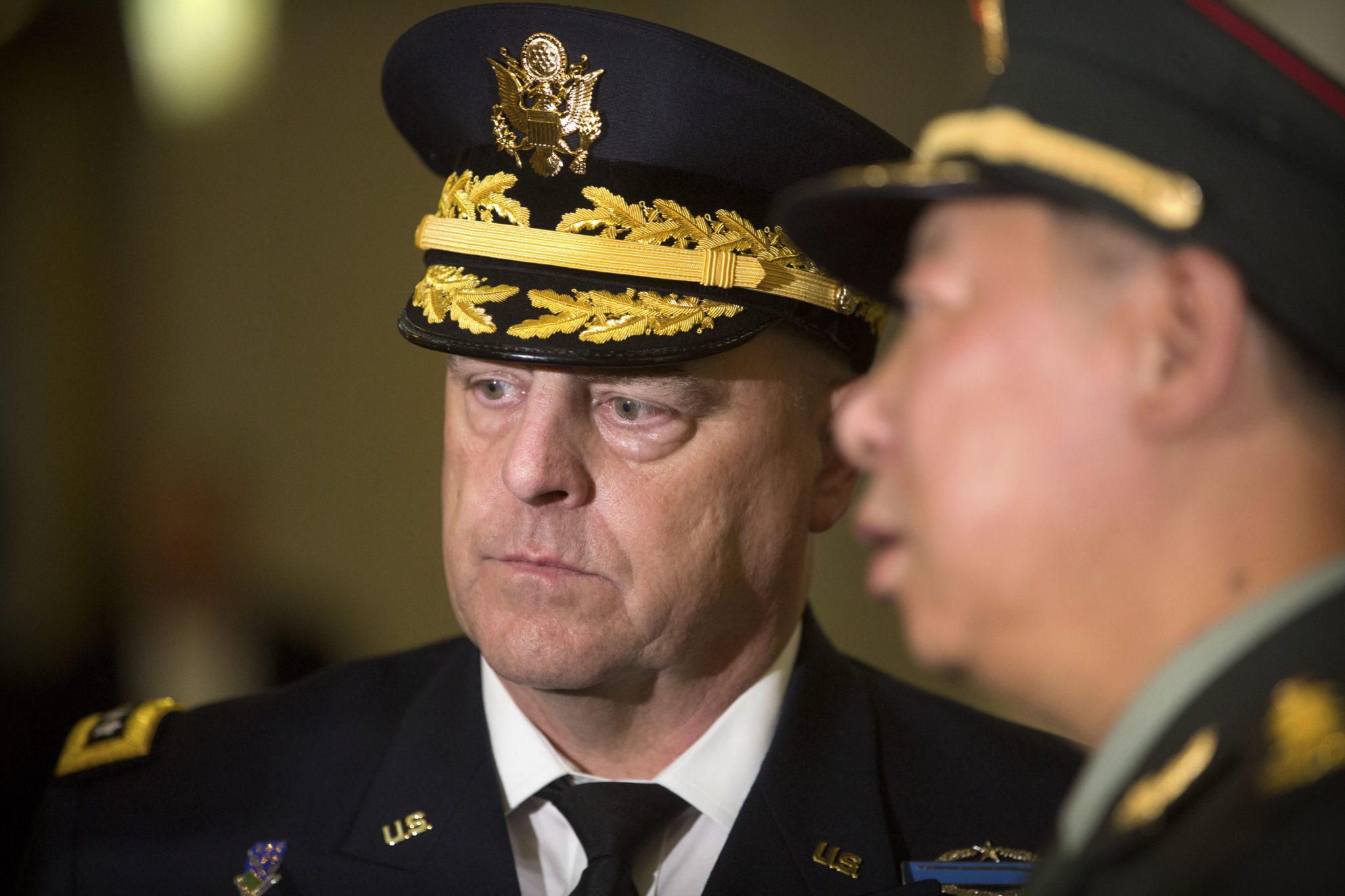Top General Promised to Spy for CCP in Event of Conflict with US

Feast your eyes on this headline from the venerable Washington Post: “Top general was so fearful Trump might spark war that he made secret calls to his Chinese counterpart, new book says.”
In other news, “Top intelligence officials were so fearful Kennedy might [REDACTED] that they [REDACTED].”
WaPo, CNN, and a few other outlets reporting details from sometime deep-state mouthpiece Bob Woodward’s forthcoming novel, Peril, seem blissfully unaware of the spin they’re applying to the story. Let’s run through what actually happened.
Four days before the presidential election, Milley made a secret call to Gen. Li Zuocheng, head of the Chinese People’s Liberation Army, assuring him that they were still friends. “General Li,” the highest-ranking officer in the most powerful military in the history of the world pleaded, “you and I have known each other for now five years. If we’re going to attack, I’m going to call you ahead of time. It’s not going to be a surprise.”
How very thoughtful.
The mental gymnastics required to spin this into the grand theory of “Orange Man Bad” are astonishing, but they’re right there for all to see: Trump was off the rails—we know this because, well, trust us—and the adult in the room stepped in to ensure peace and security for generations to come.
Speaking of peace—the CNN report notes that one reason Milley thought Trump was losing it is that…he wanted to bring American troops home from the twenty-year war in Afghanistan. Somebody killed the commander-in-chief’s plan, which (CNN informs us) was actually “Trump going rogue.”
Of course, “going rogue” might more aptly describe a military officer who, without informing his civilian bosses, promises our chief rivals to slip them vital information in the event hostilities break out, giving the CCP time to prepare or even preempt any American action.
[Apropos of nothing I’m, uh, just going to leave this here.]
Article III, Section 3, Clause 1: Treason against the United States, shall consist only in levying War against them, or in adhering to their Enemies, giving them Aid and Comfort.
Nor does Milley’s misbehavior stop with a wink-wink nudge-nudge to an old Chi-com chum. In a Jan. 8 private phone call with Speaker Nancy Pelosi, the octogenarian California pol—claiming that the president had gone crazy—asked the four-star general how they might edge him out of the military chain of command, at whose top he sits. Milley, who was eagerly investigating such avenues himself, responded simply, “I agree with you on everything.”
Though it never came to that, Milley does seem to have laid the groundwork for such a move. That same day, the chairman summoned senior military officials to his office in the Pentagon for a secret meeting. Despite the fact that the chairman of the joint chiefs is not legally vested with any command authority, and that the president is the sole legal commander-in-chief of the United States Armed Forces, “Milley instructed them not to take orders from anyone unless he was involved.”
Milley then went down the line, looking each man in the eye and demanding he confirm and assent. Woodward and coauthor Bob Costa write: “Milley considered it an oath.” (Presumably to him, not to the Constitution or anything silly like that.)
In all this, we are told, Mark Milley is the hero and a consummate patriot.
Listen. Sometimes, the only way to stop a coup is for the senior officer of the armed forces to usurp the powers of the constitutionally elected head of state. Who says democracy has to die in darkness?